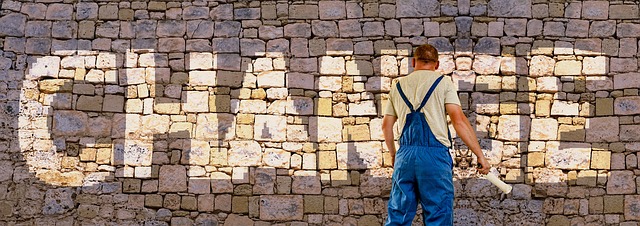There are texts that remain static and stable over time, both in the public square and in the Church. We do not lightly amend or change such things as our national anthem or the pledge of allegiance. Rules do not change at whim for the sports events that capture the national attention. In the Church this has meant that texts like the Our Father, Creed, and Confession are not updated except where necessary. We saw how the modern wording of the Lord's Prayer has fallen flat over time and how important it is to retain the text that has come down to us through the ages. In the same way, in the solemn moments of national scope benefit from tradition, ritual, and ceremony that have served us through the ages. Even in the age of political division and pandemic, the inauguration of a president is one of those occasions in which tradition benefits the hand off of power from one administration to the next. So in the Church do we pass off from one generation to the next the sacred texts that we received. This happens at home and in the Church. I cannot think of anyone who has ever asked me for a modern version of the 23rd Psalm at a funeral. I have witnessed the snickers when the traditional vows that were spoken were replaced with words that proved less then worthy and even downright foolish when viewed a generation later. No, change like this best comes slowly and deliberately.
I have advocated often for the deliberate and incremental change of the liturgy, that no one benefits from radical revisions (except in cases of heresy) except the devil. We know from the personal experience of the liturgical change of the 1960s and 1970s that it did not encourage people to attend but may have been a significant factor in the decline of the worship attendance of many of God's people. Liturgical change is best handled slowly and incrementally for the benefit of youth and for the comfort of age. Since one of the primary areas in which we as the Church confess our faith is what we say and do on Sunday morning, the Divine Service in the role of such confession will not benefit from constant amendment or change and will be damaged by radical change. In this the hermeneutic of continuity is a key concept, forgotten only to our detriment and recalled for the benefit of all. But the liturgy is not the only thing that benefits from slow evolution.
When the catechism is subject to constant amendment, the very purpose of having a catechism is contradicted. The catechism serves the Church and the faithful by providing a solid reference for the faith and a stable teaching tool to pass on the faith. When we tinker with the text of the catechism too often, we make the catechism less that a sturdy summary of the faith that will serve as an anchor for God's people. Minor edits may not seem like all that much until you get a room full of people and we all try to repeat from memory a part of the catechism -- only to find that we learned different words! While it is not a bad thing to add to the catechism when things must be addressed that did not even exist in previous generations but it is not helpful to the cause of the catechism to change the content of what we believe, teach, and confess. When this happens, the evolution is really a devolution of the ready tool of catechesis and the cause of teaching the faith to the faithful.
The same is true when multiple versions of Scripture are employed in the lectionary. It is best that we find a version which best serves the pericopes and is faithful over time rather than constantly changing the text. I have found myself stymied with passages long ago committed to memory only to have that memory corrupted as different translations have rendered the same words differently enough to make it hard for me to recall any one of them accurately. No, the best course is slow and deliberate change that respects the benefit of continuity and aids the cause of the faithful at home and in the Church by treating these things with care and respect.

No comments:
Post a Comment